Sonil Dedhia in Mumbai
"Let’s look at the technical details when we meet in the lab," director Gyan Correa tells someone, presumably an assistant, as he settles down in his plush South Mumbai office for this interview.
With his debut film The Good Road chosen as India’s official entry to the Oscars, Correa is busy juggling between interviews and preparing for the Oscars.
Ritesh Batra’s film The Lunchbox, which was heavily publicised, was a front runner for the Oscar entry. Correa isn’t bothered about that and says juries are constituted for the purpose of choosing the entries and not audiences.
Correa also says that there is no animosity with Anurag Kashyap and Ritesh Batra. “I have spoken to Anurag and Ritesh and they are happy with my film. In fact, Kashyap has even offered to help me in whatever way possible,” Correa says.
In a long conversation with Sonil Dedhia, Correa talks about the film’s expectations, the debate on the Oscar nomination and why he made the film in a language he doesn’t speak.
Has the news that your movie is going to the Oscars sunk in?
Yeah! It has!
How hectic have things been since the announcement?
The first thing is to make the submissions to the Oscar committee for which I have to align all the technical aspects and that’s quite a long process.
Then we need to form our strategy. My priority is that. Any kind of publicity will come later.
What exactly are you doing in terms of technicalities?
It’s the same film but you need to make your DCP (Digital Cinema Print) to very high specifications, projections, sound etc.
As opposed to celluloid filmstrips, the world is moving towards digital projection, so this year the academy wants digital prints.
'In terms of world cinema, we are very backward'
Image: Director Gyan CorreaHave you decided how you will promote your film in the US?
It’s a little early to talk about the strategy. But there is a process of appointing a publicist in Los Angeles and that’s been done.
Apart from that, I can’t share anything with you as of now.
Are you planning for a bigger release in India?
Yes, there are plans but I can’t comment on it as the producers are handling the release part.
The only thing that I can say is that it makes economic sense to release the film (in a big way).
Has the controversy around the choice of Oscar entry been a distraction?
No. This is natural. It’s excessive but I think that’s because of technology.
This Twitter thing is very dangerous. What you think in one second is in front of a million people. There’s no undo button.
But it didn’t affect me. In fact, I met Anurag after that. I’ve spoken to Ritesh (Batra) and there’s no issue.
There’s a bigger picture here. In terms of world cinema, we are very backward. Let’s face it, let’s be candid and honest that we are very, very backward. We have a long way to go to raise our standard of films.
This year there have been some really nice films that are in competition from India: Ship Of Theseus, The Lunchbox, my film etc. I think that is good.
'I would make my next film in much the same genre and style as The Good Road'
Image: Keval Katrodia, Sonali Kulkarni and Ajay Gehi in The Good RoadWhy was so much attention given to just one of the Oscar shortlisted films, The Lunchbox?
I don’t know. I think The Lunchbox is a good film. It has done well on the international festival circle. People like it. So I guess the feeling was that it would do well.
There were so many films, which were all good, but the one that stood apart against your film was The Lunchbox.
There’s no film that is better than another film. Films are subjective. One man’s poison is another man’s nectar.
The best films in the world or the best filmmakers in the world are panned sometimes. And then after being panned they are liked or the other way round. So it’s a subjective medium.
And that’s why you have a jury and the jury decides and that jury is not us. The jury saw many films. I think The Lunchbox was the favourite, but The Good Road was selected over The Lunchbox.
Why do you think The Good Road appealed to the jury?
The film is talking about universal values in a truly regional kind of colour, flavour and language. It’s very local.
The film is very multi-layered and it has a lot of significance.
I am not comfortable talking about my film because I don’t think audiences should ever be patronized. They should form their own opinion because the audience always rewrites the film in terms of what they see and what they leave the theatre with.
This film has got layers that offer insights into the characters, what they are going through etc.
The story is quite well told. I would make my next film in much the same genre and style as this one.
'Even the Oscars will be forgotten'
Image: A scene from The Good RoadDid you expect it to be chosen?
I was surprised, excited, and nervous when my film was selected but my personality plays a role over here. Ups and downs don’t affect me. I do what I have to do.
I decided to make a film with non-actors playing major roles and I did it. I wanted Sonali (Kulkarni) and Ajay (Gehi) because I wanted that balance, and I did it.
People are talking about controversies. First of all, there wasn’t any controversy and if there was one, it is a matter of a few days.
What is important is that our films will last for a lifetime.
Recently in an interview director Dibakar Banerjee said that filmmakers like Anurag Kashyap don’t care about the Oscars. The release of the film is what matters the most.
I agree with him. Being a journalist, you will understand that this debate between The Lunchbox and The Good Road is just a matter of a few days. Tomorrow you are going to write about something else.
What remains with the people are the films -- The Lunchbox or The Good Road or Ship Of Theseus.
I am sure hardly anyone knows which foreign film won the Oscars last year.
What I am trying to say is that even the Oscars will be forgotten.
The main thing for people like Dibakar Banerjee or Ritesh Batra or me is to start working on our next film.
'If The Lunchbox was selected for Oscars, I would not have felt bad about it'
Image: Keval Katrodia in The Good RoadA similar controversy erupted when your film won the National Award for the Best Gujarati Film. A lot of people believed Saptapadi (a Gujarati film starring Swaroop Sampat and Manish Gohil) was a better choice. Was this like a nightmare repeated?
These are very dark terms. I don’t perceive it that way. I don’t think there’s any nightmare here. It’s a very unfair characterisation. Then why have a jury?
If you have already decided that The Lunchbox should go, then just send it. Have a poll of everyone who goes to the cinema and whichever film wins send that.
We will end up with a Barfi! or a Dabangg going to the Oscars. That’s the popular vote. I am not comfortable with people terming The Good Road as an Oscar fiasco.
Do you think general audiences should be involved in the selection of films that go to the Oscars?
I have no clue. I only know that I have been selected. I believe my film is good and I will go ahead with my film and fight for it.
There must be a lot of maths involved in going for the Oscars. I don’t bother about that. I do what’s best.
You just mentioned you didn’t want to get behind the maths involved in the selection process, did it then become rather more stressful to go ahead and justify your film?
I do not have to justify my film. A lot of people have said nasty things about The Good Road, very critical things. That’s fine.
Some people have said it for the right reasons. I accept and appreciate that view. There are some people who are highly motivated and when you read the article you know that and it doesn’t matter to me.
I haven’t seen The Lunchbox but I do know about it, and I can tell that it’s a good film. If it had been selected for the Oscars I would not have felt bad about it.
'There is zero political backing or lobbying for my film'
Image: Movie poster of The Good RoadA lot of people also felt that your film was selected for the Oscars due to some political backing from Gujarat Chief Minister Narendra Modi. He also tweeted…
(Cuts in) Yes, I read about it and it is absolutely rubbish.
Don’t you think Narendra Modi should tweet about a Gujarati film being selected as the official entry from India to the Oscars?
I’ll give you an example. If the Indian cricket team does well in South Africa the Prime Minister tweets. He is not the Congress’s Prime Minister; he is India’s PM and represents the entire country.
There is zero political backing or lobbying for my film.
Your film had a small release and that too only in Gujarat…
It’s a Gujarati film. I would have liked the film to have a bigger release but I am not a producer to look into these things.
My film is going to get a bigger release now. It’s very unfortunate that people are seeing the film on DVD. It has to be seen on the big screen.
'There is a big advantage in making a film in a language that you don't know'
Image: A scene from The Good RoadWhat resonated with you to make the film?
I travel on highways and I come across a lot of people. I just thought that these stories must be told. One of the stories in my film is of a truck driver.
Truck driver’s life is very difficult. They get the worst roads, the worst drivers, the worst working conditions. They are harassed. And yet they deliver their goods.
You were born in Kolkata and grew up in Mumbai. Why make a film in Gujarati, a language alien to you?
I feel there is a big advantage in making a film in a language that you don’t know. When you don't know the language, you are forced to concentrate on the emotional content of the story.
I think dialogues are not important. A film is not only about delivering dialogues. The chemistry between the characters is more important.
Having said that, it was hugely challenging because I had to connect with my cast and crew on a basic, fundamental level and understand their thought process.
All my assistant directors were just amazing. They understood my vision and made it their own.
But why specifically was Gujarat the backdrop?
After I wrote the story I thought of where I could place it. I thought Kutch was the best place. Because when I think of Kutch, it’s the sort of place which surprises you by its depth and layers.
Kutch is not just the topography but also the people, the culture, the music. The place is very unique and rich in terms of its ethnic, cultural and linguistic heritage.
It's very rich in terms of its people and landscape. It was a perfect fit for the story and the characters of my film.
I would love to live in Kutch.
'I am not highlighting Gujarat in a bad light'
Image: Poonam Kesar Singh in The Good RoadTell us about the casting of the film. You decided to cast real people from the local areas of Gujarat.
One of the things I was very clear about right from the start was that I was going to cast the film in its natural environment and be very faithful to that natural environment.
So, as far as possible, the characters are from there. The truck driver had to be a local person, the little girl had to be a local person and the people who were in the car had to be a set of people from an urban centre but who knew that area, that language and that place, but not as well as they thought they did.
You show child prostitution in the film. Were you concerned about a backlash especially when the film released in Gujarat?
I wasn’t concerned about it because my film is not a documentary. It is a work of fiction.
I am not saying that every child in Gujarat who stays on a highway is into the sex trade. But let’s face the fact that prostitution exists on the highway.
The real challenge was portraying this without being voyeuristic. The child was very important for me. The little girl (Poonam Kesar Singh) was a sweetheart and I didn’t want to make it difficult for her.
It was challenging to find the right balance between keeping it realistic and at the same time not making it voyeuristic. If people say that I am highlighting Gujarat in a bad light, I am not.
What problems did you face when making the film? Was money ever a concern?
I knew that with the script I had and the kind of cinema I wanted to make, I'd never be able to raise funds from any of the big production houses.
My biggest problem had nothing to do with money. NFDC (National Film Development Corporation) was very clear about the funds. They give you a stipulated amount and you work within that.
The biggest problem was to align everyone’s mindset with my script and the idea of this film.
The other issue was taking non actors and explaining what they needed to do.
'I don't go to see films like Chennai Express or Dabangg'
Image: Keval Katrodia and Shamji Dhana Kerasia in The Good RoadYou say that in terms of world cinema we are very backward. What can be done to change this situation?
For the next 10 years we need to have at least seven films of high standard competing with each other. By high standards I mean films like The Lunchbox or Ship Of Theseus or the other films that were shortlisted by the Film Federation Of India (FFI) for the Oscars.
We all know that a film like Barfi! is not going to go anywhere. I am not saying anything against the makers of Barfi! In fact, directors like me are thankful to Bollywood and commercial cinema because they make enough money to sustain this industry.
The kind of film I have made or Ritesh (Batra) has made would not have been possible if it weren’t for Bollywood.
We need 25 Anurag Kashyaps and 25 films like The Lunchbox so that we can proudly compete with world cinema.
What kind of films do you personally enjoy watching?
I watch a lot of world cinema. I am not a Bollywood fan at all. I am a fan of what they are doing, as I mentioned. But these films don’t inspire me.
I don’t go to see films like Chennai Express or Dabangg.
Buy The Good Road DVD right here!

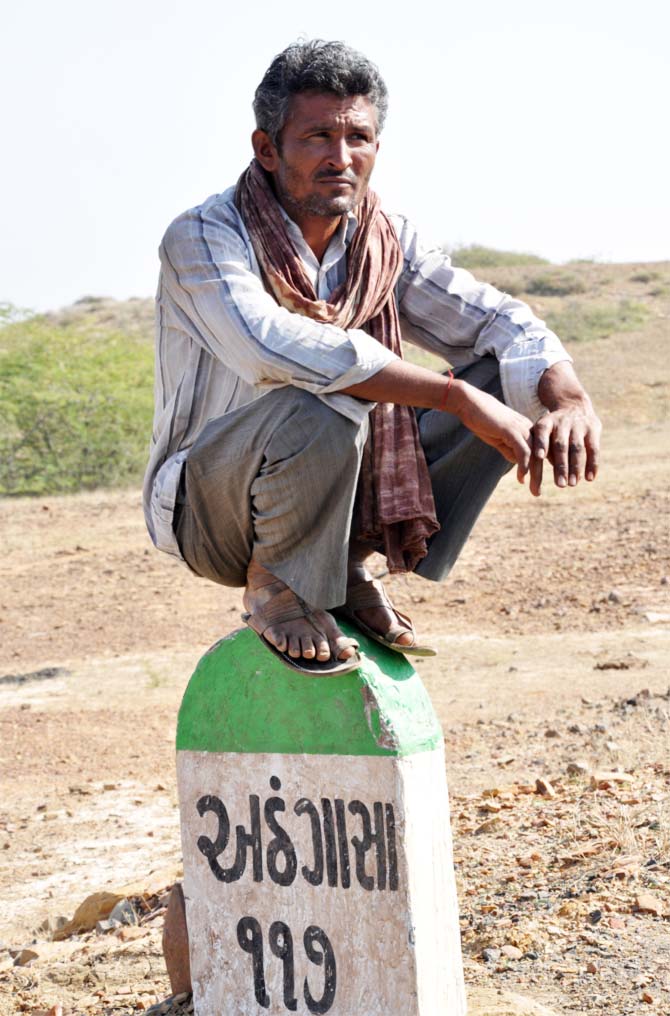
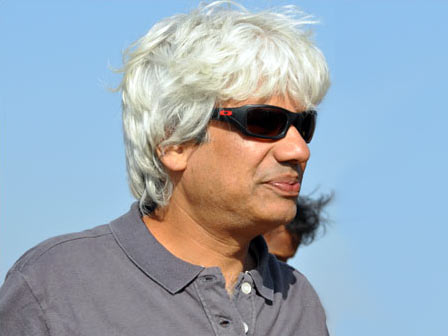

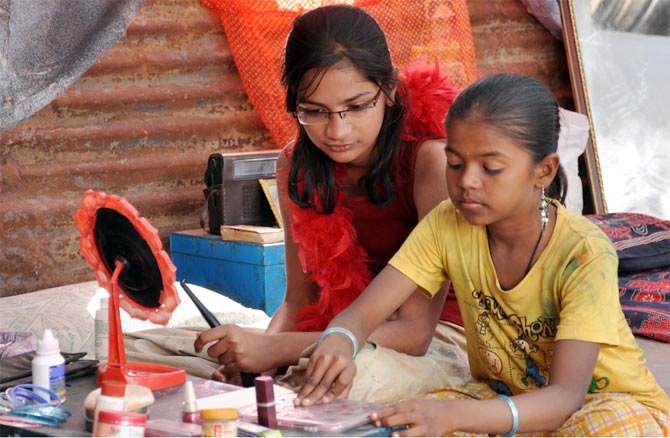
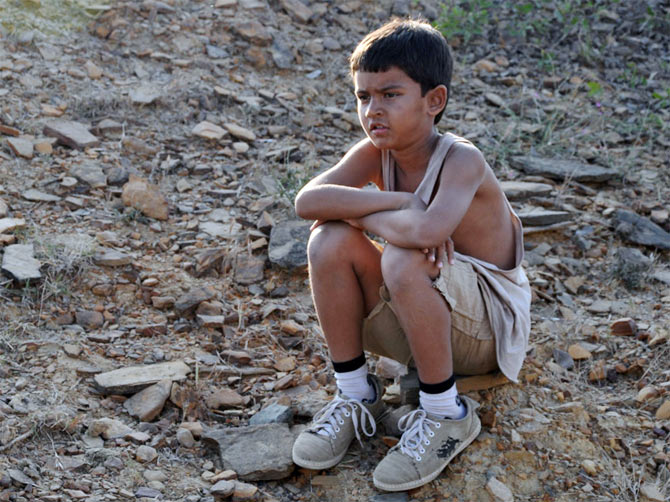
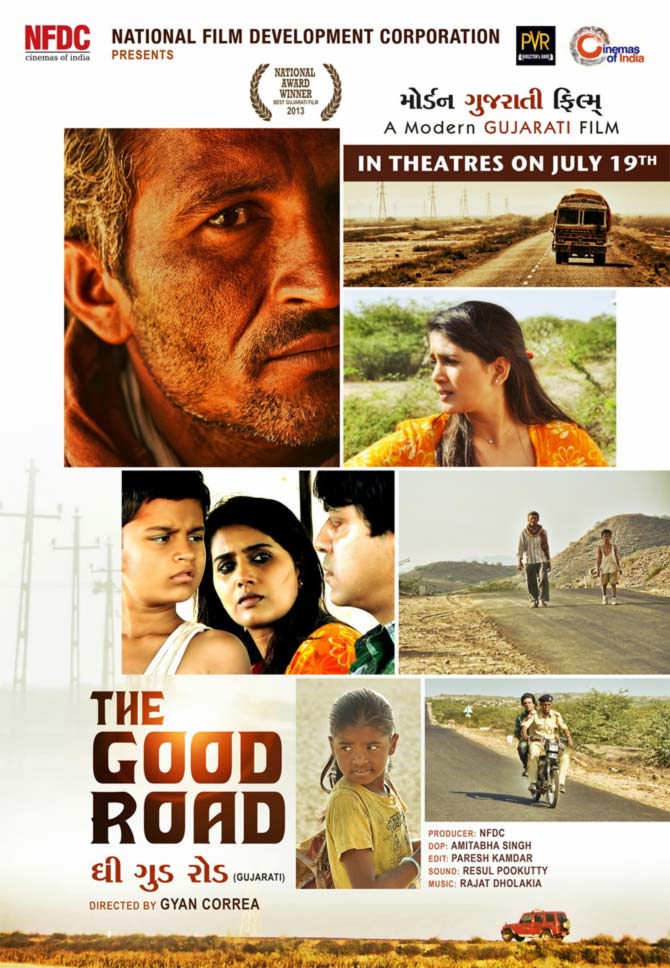
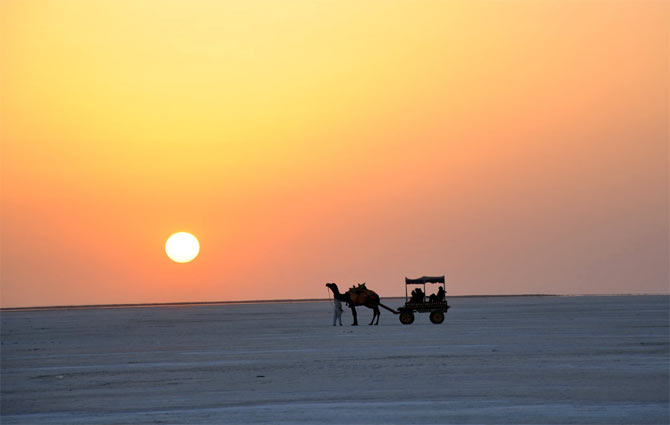
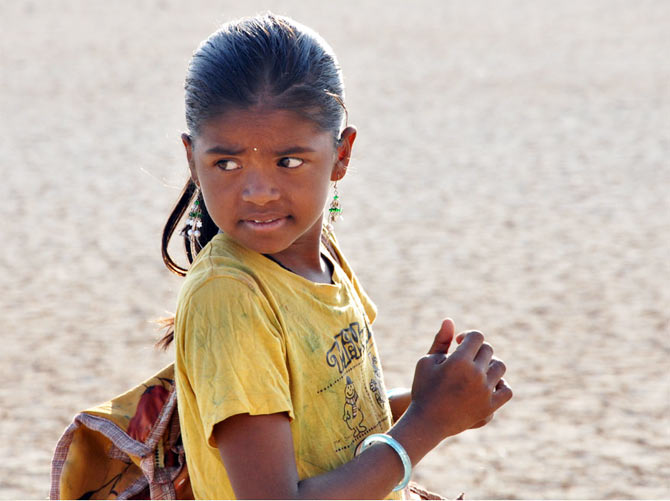
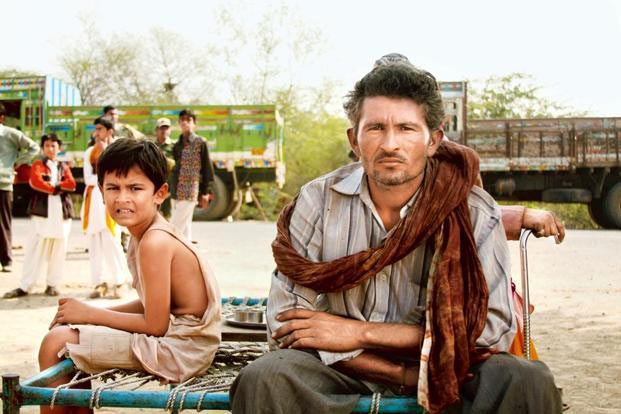
Comment
article